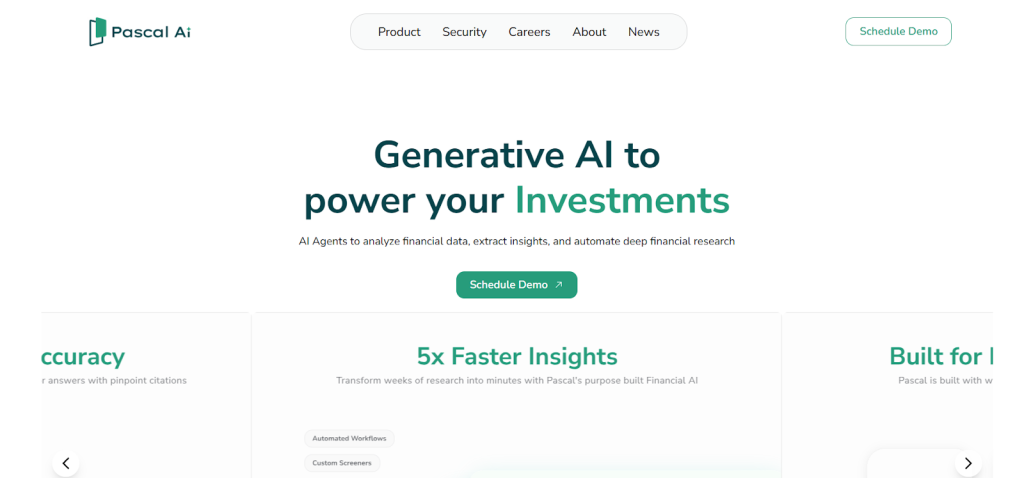Pascal AI Labs Secures $3.1 Million Seed Funding to Redefine AI-Driven Automation
September 22, 2025
byFenoms Start-Up Research

The race to make artificial intelligence practical, efficient, and scalable has attracted significant capital in 2025. Pascal AI Labs, co-founded by Vibhav Viswanathan and Mithun Madhusudan, has just closed a $3.1 million seed funding round. The raise was backed by notable investors including Kalaari Capital, Norwest Venture Partners, Info Edge Ventures, and Antler, alongside several strategic angel investors. This milestone signals the growing importance of startups building core AI infrastructure that addresses the real bottlenecks enterprises face in deploying automation at scale.
Building Smarter AI for Real-World Applications
While the hype around AI has largely revolved around flashy consumer-facing products, the true challenge lies in enabling businesses to apply AI reliably to their operations. Pascal AI Labs is tackling this head-on. The company is building advanced AI-driven automation tools designed to help enterprises not only process data more effectively but also integrate intelligence seamlessly into workflows.
Their approach stands out because it focuses on practical deployment. Rather than pushing experimental models into the market, Pascal AI Labs is working to ensure that AI systems are robust, adaptive, and capable of meeting the unique needs of industries such as finance, healthcare, and logistics. This emphasis on applied AI is precisely what makes the company attractive to investors seeking long-term, defensible value.
Why Investors Are Betting on Pascal AI Labs
The seed round is more than just an injection of capital - it’s a strong vote of confidence from some of the most respected names in venture capital. Kalaari Capital and Norwest Venture Partners, in particular, have built reputations for backing companies at the intersection of technology and scalability. By joining forces with Info Edge Ventures and Antler, Pascal AI Labs now has not only financial backing but also access to networks that can accelerate enterprise adoption.
But the real lesson here for founders is hidden beneath the surface. Startups often chase visible problems - building consumer products where demand is obvious - but the most valuable companies frequently emerge from addressing invisible friction points that prevent industries from scaling. Pascal AI Labs is not simply building “yet another AI tool”; it is targeting the integration gap that keeps enterprises from fully realizing AI’s potential. For founders, this highlights a critical insight: if you can identify and solve the hidden obstacles that stall adoption in your industry, you position yourself not as a vendor but as an indispensable partner. That’s the kind of positioning that attracts top-tier investors and creates defensible long-term value.
Positioning for Growth in a Competitive Market
The $3.1 million seed funding will allow Pascal AI Labs to expand its engineering team, refine its platform, and deepen its market presence. With industries under immense pressure to cut costs and improve efficiency, demand for reliable AI-driven automation is only going to rise. By focusing on solving integration challenges, the startup has carved out a niche that is both timely and enduring.
In a world where large language models and generative AI dominate headlines, Pascal AI Labs is betting on a quieter but equally important frontier: making AI usable in everyday business processes. This practical approach is what sets the company apart from startups chasing hype cycles.
The Road Ahead
Pascal AI Labs has positioned itself at the intersection of scalability, practicality, and innovation. With backing from a strong syndicate of investors, the startup is well-placed to accelerate its mission of enabling enterprises to harness AI in meaningful ways. The coming months are expected to bring product expansions, deeper collaborations with enterprise clients, and the continued refinement of its automation tools.
For the AI ecosystem, Pascal AI Labs represents a new wave of startups that are not content with riding the generative AI hype but are instead addressing the infrastructure-level barriers that determine whether AI will truly transform industries.









